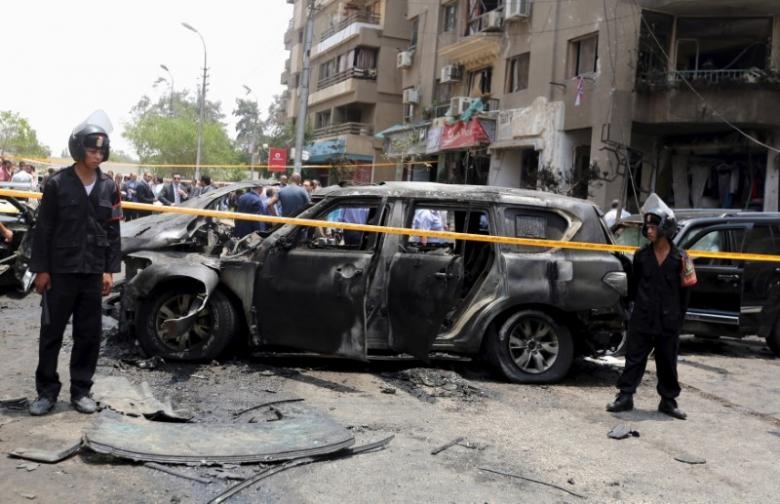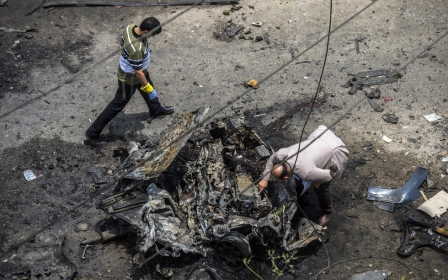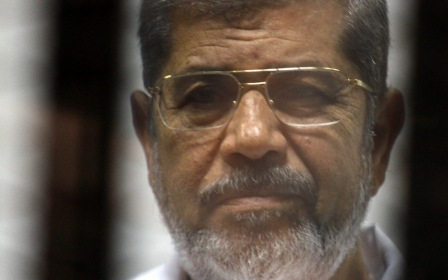Egypt court seeks death penalty for 30 in prosecutor bombing case

A Cairo criminal court on Saturday recommended the death penalty for 30 people convicted of involvement in the 2015 assassination of Egypt's top prosecutor, the most senior state official killed by militants in recent years.
The court set a verdict session for 22 July, after referring its recommendation to the country's top religious authority, the Grand Mufti, for a non-binding legally-required opinion. The 22 July verdict can be appealed against.
Public prosecutor Hisham Barakat was killed in a car bomb attack on his convoy in Cairo, an operation for which Egypt blamed the Muslim Brotherhood and Gaza-based Hamas militants, though both groups have denied it.
"The brutal conspiracy by hired hands to target the public prosecutor Hisham Barakat and assassinate him, where the corrupt and weak-willed forces of evil and tyranny conspired, could only be carried out by an unjust group that has shed innocent blood," said Judge Hassan Farid.
Farid initially read out 31 names but two of them referred to the same person and the judge then corrected himself.
Only half of the defendants are in custody, with 15 on the run.
The Interior Ministry released a video last year showing clips of several young men confessing and admitting going to Gaza for training from Hamas, though some of them later denied the accusations in court.
The defendants said they were forced to confess under torture and their lawyers asked that they be medically examined. Farid said he granted the request to a majority, but not all, and that doctors in a prison hospital had found no signs of torture.
Cairo regularly accuses Hamas, which controls the Gaza Strip and is allied with the Muslim Brotherhood, of supporting attacks in Egypt.
However, Barakat’s driver, Nasser Rifaat, who was slightly injured in the attack, told investigators soon after that the prosecutor died after being hit by a car in the aftermath of the explosion.
According to Rifaat, Barakat was conscious and walking after the bomb detonated.
Egyptian broadcaster Ahmed Moussa, known to be close to President Abdel Fattah al-Sisi, at the time named a former officer in the Egyptian army as the prime suspect.
The government ordered a media blackout on the case soon after.
Egypt faces a militant insurgency led by Islamic State in North Sinai, where hundreds of soldiers and police have been killed.
Barakat's assassination came after an IS affiliate, "Sinai Province," called for attacks on the country's judiciary.
The group has also increasingly carried out attacks in Egypt targeting Christians in a spate of church bombings and shootings that have killed some 100 since December.
Barakat was the highest-ranking state official to die in a militant attack since President Abdel Fattah al-Sisi, a former military chief, ousted President Mohamed Morsi, a Brotherhood leader, in 2013 after mass protests against his rule.
New MEE newsletter: Jerusalem Dispatch
Sign up to get the latest insights and analysis on Israel-Palestine, alongside Turkey Unpacked and other MEE newsletters
Middle East Eye delivers independent and unrivalled coverage and analysis of the Middle East, North Africa and beyond. To learn more about republishing this content and the associated fees, please fill out this form. More about MEE can be found here.




